- Home
- Peter F. Hamilton
Best of British Science Fiction 2016 Page 4
Best of British Science Fiction 2016 Read online
Page 4
“Nukes. If 9/11 is stopped.”
“That’s right.”
“So… stop that as well.”
“And if we do, which we could, it would be another target, another atrocity. Bin Laden is a persistent man.”
“So tell the CIA where he is.”
“A compound in Bilal, that’s in Pakistan.”
“What? You know?”
“Yes. He’s going to be killed by a navy Seals team in two thousand and eleven.”
“What is it with two-thousand-eleven? And why not assassinate him now?”
“You tell me.”
My shoulders sag. “Consequences.”
“Yes. If we keep chasing down the bad guys, what does that make us?”
“What do you mean?”
“We become official. True world Guardians of Peace. The baseline governments will turn us into an agency or service – at best. We are unique, my dear, us timedreamers. At most there are a hundred of us in any generation. But our talent makes us possibly the most powerful people ever. We can strike down an enemy before they even become an enemy. And what will happen if baseline humans ever discover we exist? Have you thought of that?”
“They’ll be frightened, I guess.”
“No. It will be worse than the age of ghouls. They will be utterly terrified. Because if we do stop terrorists and wars, we poor few will become the rulers of the world. We decide everything, including who lives and who dies.”
“So that’s what you’re really Guarding against?”
“It’s half of it, yes. We carry on the work Jesus started, and protect the fey. First they’ll come for us, then the others will be hunted, and we won’t be there to protect them.”
“But we’ll always be able to warn ourselves if anyone comes for us.”
“And so we become rulers out of self-defence. There are parallel worlds where it has happened. Where it is happening.”
“What’s the point of timedreaming if we can’t help people?”
“We are helping people. Guardians talk to each other across eras, and keep the timeline stable.”
“So what you’re saying is Guardians do have a purpose. I don’t. Are you trying to recruit me?”
“Nobody is ever forced to become a Guardian; that would be wholly counterproductive. And not every fey has your compassion and goodwill. We Guard against that, too. I watch history and warn my predecessors against rogues and inadvertent consequences; as I am warned by those in the centuries to come.”
“What if I don’t listen? What if I keep trying to expose the lies?”
“You don’t succeed. And if you were to, and make things worse, then there’s always one person who will come backwhen to your moment of failure and convince you beyond any doubt that you’re making a mistake.”
“Who?”
Ms Remek smiles in compassion. “You, of course.”
Gabriel’s digs are truly eueeew. I mean, I don’t need to go back two centuries to witness people living in poverty and squalor. Sixties students would envy medieval hovels for their luxury.
He doesn’t seem to mind. January sixty-eight was cold. His gas fire had five wavy flames, which all seemed to burn yellow, producing no heat. The inside of the windows were frosted over. I was lucky I couldn’t feel the temperature, at the time my body was snug at home, curled up on my bed in the early autumn, with the central heating on.
Gabriel wore his thick sweater – of course – with three T-shirts on underneath. He sat on the threadbare bed-settee, strumming his guitar, writing possible lyrics in his big notebook.
“What do you think?” he asked.
“I like it. Sort of like Perfect Day, but harder. Sharper.”
“Oh, man, you mean it’s not original?”
“Oh it is. Lou Reed writes Perfect Day in the early seventies, I think.”
He brightened. “I write like Lou Reed?”
“Better.”
“Nahh.”
“You do, seriously.” I’d manifested in five of his gigs now. He was gaining quite a reputation locally.
“So how come I haven’t got a record deal?”
“They take time, Gabriel.”
“Do I get one?” he pleaded.
“I can’t say. You know that.”
“I was thinking of giving up my course. Just concentrate on my music.”
I didn’t know what to say. He only had three years left to live. If I knew I was going to die, I wouldn’t spend what time I had left sitting in lectures. “Follow your dream.”
“Yeah?”
“Gabriel, I’d say that to anyone.”
“You’re infuriating, you know that.”
“You ever thought of going electric?”
“Naww, it’s a sell-out. I play my own music. I express what I have to say myself.”
“I love your integrity.”
“This geezer, Matt, he was interested at the gig last week. Said he’s got his own record company, Calibre. But he wanted me to go electric, too. Said acoustic is dead.”
“Your choice. Do you want people to hear what you have to say or not?”
“Is that a hint, future fairy?”
“Don’t call me that.”
Then there was a commotion outside. His friends had arrived, and he let them in. Fellow students, bringing cheap wine and homemade beer. Gabriel had more friends now, people who liked hanging out with a musician. It was party time. Two of the girls made sure they were sitting next to him, hanging off every word. I smiled. Waved goodbye.
Mum’s happy for me.
His name’s James. He’s nineteen and says he’s a musician – when he’s not working behind the bar at the local pub. He lays down electro-pop tracks on his PC, and lets anyone download them for free from his website. Twelve people have logged on in the last three months.
His dream is a record contract. At night, when we cling together, he confesses once he’s discovered he’s going to be mega, and super-rich, with homes here and in the Caribbean. He thanks me for listening, for believing in him.
I tell him to write a protest song about the war.
His answer? “Aw come on, that’s so Sixties.”
He’s tall and skinny. He has thick dark hair which is long and curly. In the dark, with his body lying on top of mine, I can’t see his face. I can’t see it’s not really Gabriel.
Amid the final joy I call a name. I’m not sure whose.
“Have you met me, man?” Gabriel asks.
It was late summer sixty-eight, and we walked around Cambridge a week before all the students came back. He carried a bag full of Future Fairy singles, which he was trying to flog to the city’s independent record shops.
“Er… what do you think I’m doing?” I ask.
“Not now,” he laughs. “In the future. Have you come to see me?”
“No.”
“Did you try? I’ll be what? Fifty five, yeah? Did my bodyguards stop you?”
“You have a very high opinion of yourself.”
“Is it justified?”
I haven’t seen him so happy for a while. Musicians can be moody prats at times. Adds to the mystique, I suppose.
“Stop trying to wheedle stuff like that out of me. You know I’ll never say.”
“Okay, all right.” He stopped in the middle of the market square, and almost made to grab me. His arms came up before he remembered – he was the wild student talking to himself in public. “How about this, man. What month is it with you now?”
“September.”
“I’m going to remember November the first, 2003, okay? On that day I do solemnly swear I will be right here on this spot. No bodyguards, no managers. Just me. Please please please, be here. Just to talk.” He faltered. “Just to touch you. To know you’re real. I need that.”
“Gabriel…”
“Promise me!” he yelled.
Now half the market was looking at the crazy boy.
“I promise.” I turned away so he couldn’t see
my tears.
So now Google says Just to Touch You the second single by Gabriel Ivins charted at number 47 in the nineteen-sixty-nine January top fifty chart.
And on the radio the news is a High School shooting in the American Midwest. Seven dead. I wait and I wait, and future me doesn’t manifest to tell me not to go and warn the school.
But I’m scared. Scared of my power. I don’t want to rule the world. I want the world to be a better place. But I want those kids not to have died.
I don’t know what to do.
Winter sixty-nine, and the Gabriel Ivins band is on tour, promoting their first album. I haven’t been to see him for a while – his time. That last consequence wave was a large one. I almost expected a visit from Ms Remek. But she didn’t come, so I manifested in a pub in Newcastle.
The band is mainly session musicians put together by Calibre records. Older than Gabriel. Competent but without his verve.
I drift through the audience watching the show. And Gabriel is bad. You can tell the roadies have turned down his guitar feed. His hand is strumming in a jittery way that’s out of tune with the rest of the band. And his lovely smooth voice is all harsh – like he’s inventing death metal twenty years too early.
That gave me a chill, but I’m pretty sure I’ve never mentioned future music trends to him.
The audience drinks. They don’t pay him much attention.
Backstage in the green room after the gig, and he’s got three groupies groping him on the couch. Nobody drinks beer, it’s all whisky.
Gabriel was knocking them back, but then he finally sees me. He lets out this stupid wolf howl of greeting. “Man, I missed you. It is you, isn’t it?”
One of the groupies who’s got the whole Goth thing right before there were any, frowned in my direction. But she was smoking a thick reefer so she didn’t really think anything was wrong or weird.
“It’s me.”
“Cool. I thought you’d left me.”
“No.”
“Do you like the album?”
“I do.” The album had some neat songs; on the recording Gabriel’s voice had been appealing and evocative. Downcountry was a protest about ‘Nam. It was charting, number seventeen last week – its highest. He was doing something, making his voice heard, inspiring others. I was so proud of him when I discovered that.
Trouble was, up on stage he’d just been awful.
“Thanks, man. Hey, did we meet up in futureland like we said?”
The groupies giggled at that.
“Yes,” I lied.
“Cool. What’s life like up there?”
“We gave up. We stopped protesting. The whole world’s going to hell.”
“Bummer, huh?”
Then one of the roadies came in, and gave Gabriel a nod. He lumbered to his feet and staggered across the room. The roadie slipped him a small leather wallet. Gabriel went into the toilets.
My Gabriel is doing hard drugs.
Gabriel Ivins died March 17th 1970 from a drugs overdose. Although his band’s first album was moderately successful, Ivins had to cancel the promotional tour half way through due to ‘exhaustion’. He spent the following months alone writing new songs. Recording for his new album, Paradise Unglimpsed, was scheduled to begin in April 1970. His record company, Calibre, was declared bankrupt a month later.
I’m in the lounge, crying, when Ms Remek comes in. She gives me a thoughtful look, and asks: “Have you been seeing Gabriel Ivins?”
“No. Yes. He dies anyway.”
“There have been consequences.”
I nod miserably. “I know. The wave wasn’t very big.”
“That’s because you’re only surfing it for twenty years. There are significant consequences later on.”
“Oh.” I try to make out like I’m interested. “I see future me hasn’t manifested. So how bad is it?”
“Not enough to warrant a full intervention against you. Soothers were called in to calm certain situations.”
“Oh good, so the future stays perfect then.”
Ms Remek frowns, determining how much sarcasm and sass I’m giving her. Because just this month Anna Lindh was stabbed to death by some religious nutter, Iran is refusing to cooperate with the nuclear inspectorate, Osama bin Laden says Al-Qaeda is developing biological weapons, the British National Party got a councillor elected in a Thurrock by-election, a suicide bomber killed eight people in Israel, airstrikes in Zabul province killed seventeen people. And Johnny Cash died. I could have stopped those bombings and killings. I wonder what consequences that would have? People getting to live their lives and have a chance at happiness.
“The future doesn’t get any worse,” she says tetchily.
“What’s the point?” I ask.
“The point?”
“Of our ability? If all we do is use it to keep everything the same. Why do we have it?”
“You just answered your own question. This is as good as it gets.”
I shake my head. I refuse to believe that. “There must be somewhere out there in the parallels, a world where we get it right. We could use it as a template.”
“Maybe there is. But if it is out there, it’s beyond any sidedreamer I’ve ever talked to.”
“So now what?”
“So be careful, please.”
I nod. I know she’s being reasonable, and semi-sympathetic, but it still makes no sense to me.
I want to make a difference. I want to stop the ugliness that contaminates this world.
When Ms Remek leaves I make myself a promise. In the future, I’ll come back to now and tell me something that can be stopped. If I can’t influence other people, then I can use facts; if someone’s going to get shot or bombed then I can warn them or the police myself. I will make a difference.
But I don’t manifest in front of me. I break my promise. Why? Why why why?
Gabriel’s new digs weren’t any better than his student ones. He’d got a flat in a grand old house overlooking the Cam, with two more rooms than last time, an extra bedroom and a tiny kitchen. The squalor remained the same.
When I manifested, he was lying on the worn settee, a week’s stubble on his cheeks, and looking so thin I could believe he hadn’t eaten for the whole of that same week. A guitar lay on top of him. There was a syringe and all the rest of his drugs crap on the carpet beside him.
He was dozing fitfully. I almost left, then. Except it was mid-afternoon on March the seventeenth, nineteen seventy. Gabriel Ivins would be dead before the end of the day.
I drifted round the room. He had been writing, bless him. There were pieces of paper scattered about, some scrunched up on the floor. All of them holding his lyrics, lines crossed out – re-written again and again. Ten sheets had been laid out neatly on the table: his songs for Paradise Unglimpsed, the album he never got to make.
As always, Gabriel’s lyrics were profound and eloquent. He spoke of worlds where people don’t kill, where peace breaks out not war, where hunger and hatred is a memory. A world far far away from ours.
The world I want to live in.
“You came back,” he croaked.
I went over to the settee and gazed down on him. His eyes were brutally bloodshot. I saw now how the fluffy stubble disguised sunken cheeks. “Yes, I came back.”
“I thought you’d given up on me.”
“No, Gabriel.” I forced a grin. “I’ve spent too much time to abandon you now.”
“That’s stupid, man. I am just one giant fuck-up.”
“No you’re not. I read your lyrics. They’re beautiful, Gabriel. Congratulations.”
“Matt wants me to lay down another album. I can’t do it. Touring, man, it’s too heavy. I’m not built for it.”
“You went sideways, didn’t you, a decent world a long way sideways into the parallels?”
He dropped his head in his hands. “I don’t know. Maybe. I was out of it. I don’t know if it was real or a real dream.”
“There’s no su
ch thing.”
“Yeah.” He nodded weakly.
I stared at his syringe. “Have you been trying to go back there, Gabriel?”
“Yes.”
“You can’t.”
My beautiful sweet Gabriel started to cry. “I hate myself.”
“Sing for me,” I told him. “Play the songs you wrote. I want to hear Paradise Unglimpsed.”
“What’s that?”
“Ooops. That’s the title of your next album.”
“Not bad, man. Hey, you’re not supposed to tell me that.”
“I know. I’ll put up with the heat just this once. Hearing you sing them will make it worthwhile.”
“Okay. Yeah, groovy.” He picked up his guitar.
Gabriel Ivins sang his unmade album to me in that bleak grey, cold Cambridge afternoon. He sang his songs the way they were meant to be sung, with hope and pleading.
“That’s what music is for,” I told him reverently when he finished. “To give people courage, to inspire them.”
He grinned nervously. “Are you crying future fairy?”
“Yes, Gabriel, I’m crying. I’m crying because we can never go to that parallel world you dreamed. The only way we will ever live it, is to turn our world into it.”
His gaze dropped down to the syringe.
“Listen to me, Gabriel.” I knelt in front of him, imploring. “You have to tell people a life like that is possible. You can do it. You can inspire them. Sing it loud, Gabriel. Sing it to the whole world. This is the only age when music counts. After this, the companies and producers take over. The money wins. It’s never about the music again.”
“I just want to go back there,” he said brokenly.
“You never do,” I told him. Suddenly I was standing, my expression stern. “You’re going to die, Gabriel. Today.”
“What the fuck, man?”
“You die. Here in this god-awful rat’s nest. You overdose on the shit you’re injecting yourself with. Nobody will ever hear Paradise Unglimpsed. This world will carry on along its vile corrupt course. It needs to be changed, Gabriel. You can do that. Sing for me Gabriel, show people what a decent life full of love can be. Sing that they don’t have to live like this. Be my angel, Gabriel. Save the world.”

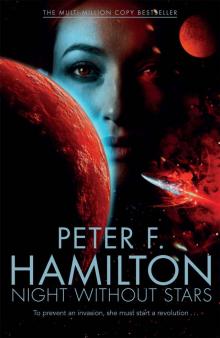 A Night Without Stars
A Night Without Stars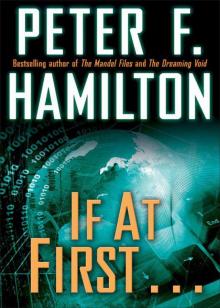 If at First . . .
If at First . . .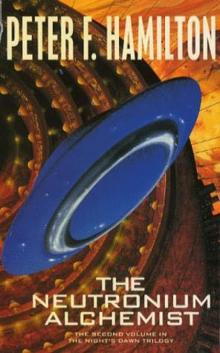 The Neutronium Alchemist
The Neutronium Alchemist Great North Road
Great North Road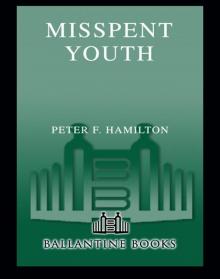 Misspent Youth
Misspent Youth Pandora's Star
Pandora's Star The Evolutionary Void
The Evolutionary Void The Dreaming Void
The Dreaming Void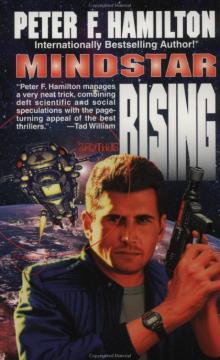 Mindstar Rising
Mindstar Rising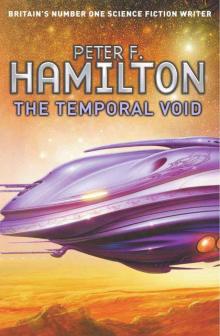 The Temporal Void
The Temporal Void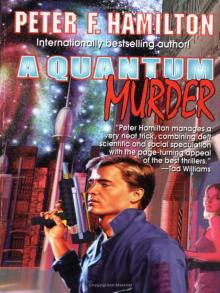 A Quantum Murder
A Quantum Murder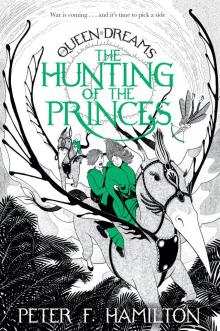 The Hunting of the Princes
The Hunting of the Princes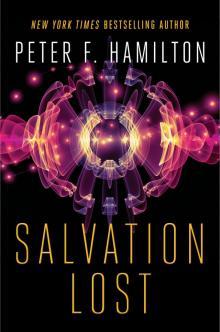 Salvation Lost
Salvation Lost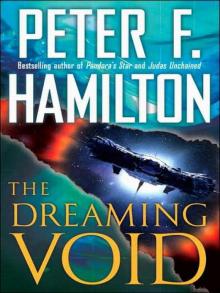 The Dreaming
The Dreaming Salvation
Salvation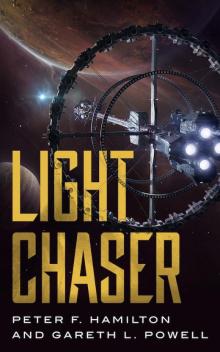 Light Chaser
Light Chaser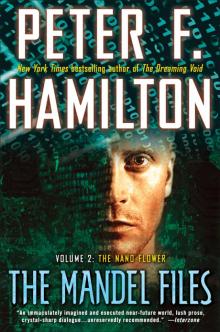 The Mandel Files, Volume 2: The Nano Flower
The Mandel Files, Volume 2: The Nano Flower![The Saints of Salvation [British Ed.] Read online](http://i1.bookreadfree.com/22/the_saints_of_salvation_british_ed__preview.jpg) The Saints of Salvation [British Ed.]
The Saints of Salvation [British Ed.]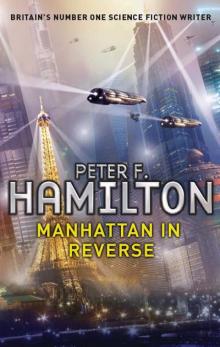 Manhattan in Reverse
Manhattan in Reverse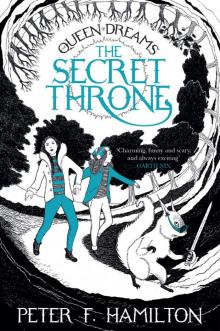 The Secret Throne
The Secret Throne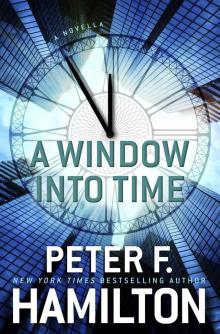 A Window Into Time
A Window Into Time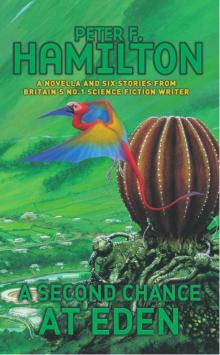 A Second Chance at Eden
A Second Chance at Eden The Nano Flower
The Nano Flower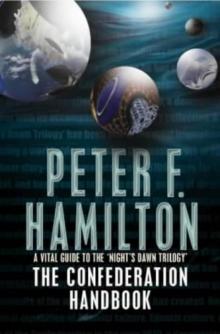 The Confederation Handbook
The Confederation Handbook The Naked God
The Naked God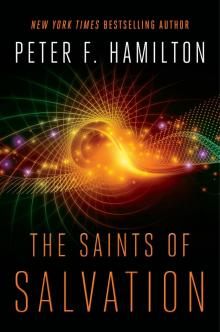 The Saints of Salvation
The Saints of Salvation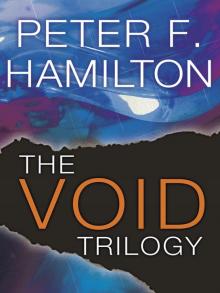 The Void Trilogy 3-Book Bundle
The Void Trilogy 3-Book Bundle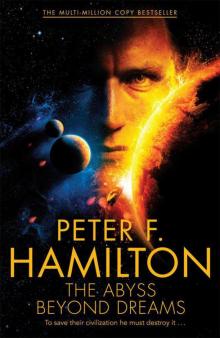 The Abyss Beyond Dreams
The Abyss Beyond Dreams A Voyage Through Air
A Voyage Through Air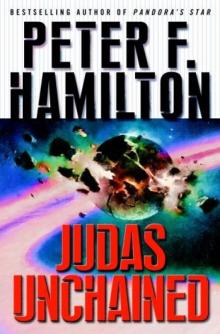 Judas Unchained
Judas Unchained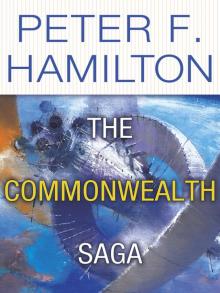 The Commonwealth Saga 2-Book Bundle
The Commonwealth Saga 2-Book Bundle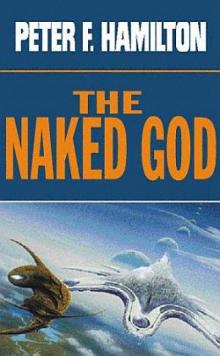 The Naked God - Flight nd-5
The Naked God - Flight nd-5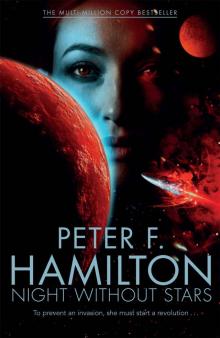 Night Without Stars (Chronicle of the Fallers Book 2)
Night Without Stars (Chronicle of the Fallers Book 2)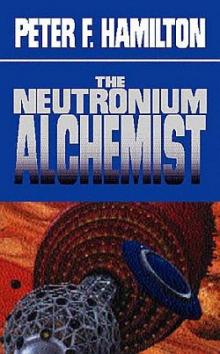 Neutronium Alchemist - Conflict nd-4
Neutronium Alchemist - Conflict nd-4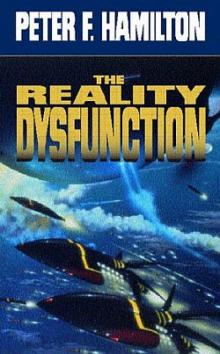 Reality Dysfunction - Expansion nd-2
Reality Dysfunction - Expansion nd-2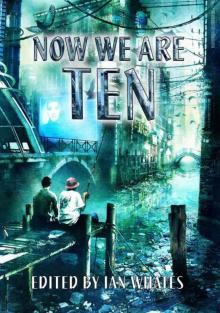 Now We Are Ten: Celebrating the First Ten Years of NewCon Press
Now We Are Ten: Celebrating the First Ten Years of NewCon Press Neutronium Alchemist - Consolidation nd-3
Neutronium Alchemist - Consolidation nd-3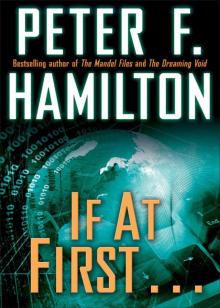 If at First . . . (Short Story)
If at First . . . (Short Story)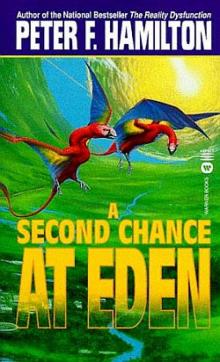 A Second Chance at Eden nd-7
A Second Chance at Eden nd-7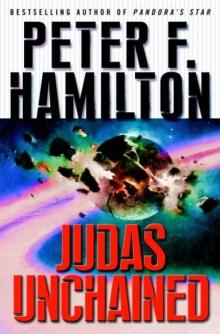 Judas Unchained cs-2
Judas Unchained cs-2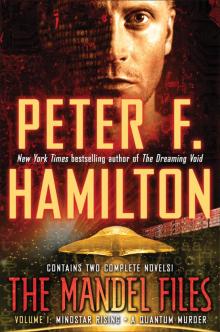 The Mandel Files, Volume 1
The Mandel Files, Volume 1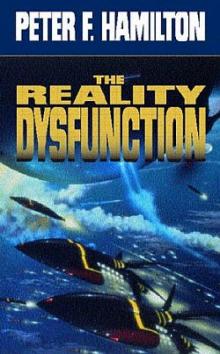 Reality Dysfunction — Emergence nd-1
Reality Dysfunction — Emergence nd-1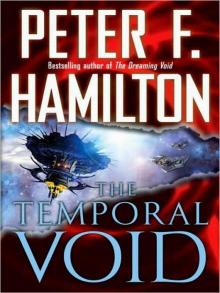 The Temporal Void (ARC)
The Temporal Void (ARC)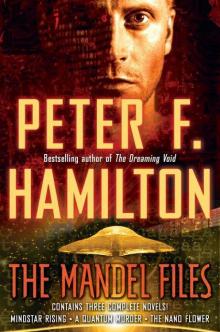 The Mandel Files
The Mandel Files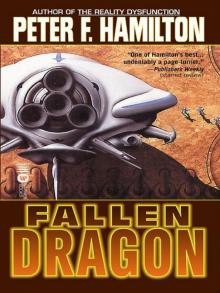 Fallen Fragon
Fallen Fragon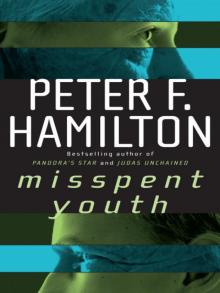 Misspent Youth (commonwealth saga)
Misspent Youth (commonwealth saga)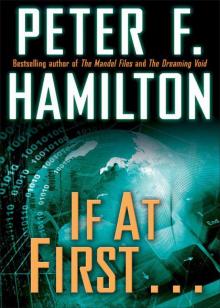 If at First...
If at First... Best of British Science Fiction 2016
Best of British Science Fiction 2016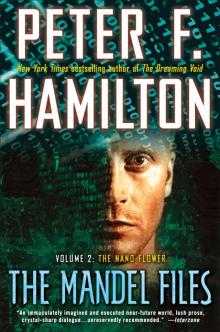 The Mandel Files, Volume 2
The Mandel Files, Volume 2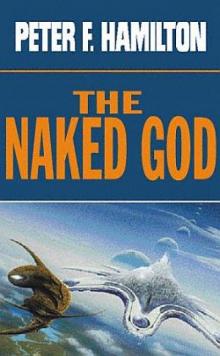 The Naked God - Faith nd-6
The Naked God - Faith nd-6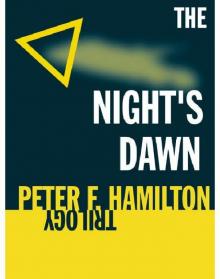 The Night's Dawn Trilogy
The Night's Dawn Trilogy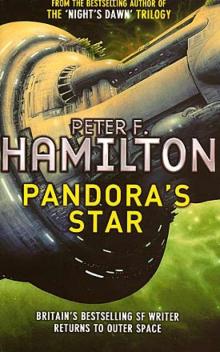 Pandora's Star cs-2
Pandora's Star cs-2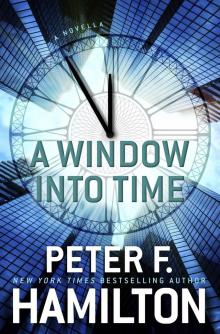 A Window into Time (Novella)
A Window into Time (Novella)